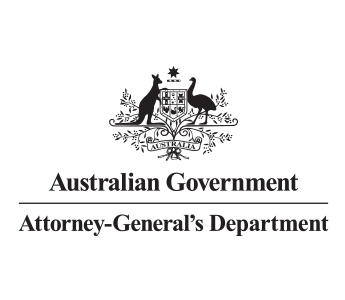Learn about training
On this page
The Commonwealth’s community of counter-fraud practitioners is critical for protecting public services and fighting economic crime.
Preventing fraud is everyone’s responsibility. Officials who are mainly employed to prevent, detect and investigate fraud need training to develop specialist skills, experience and knowledge. Explore the required and recommended training and qualifications outlined in the Commonwealth Fraud and Corruption Control Framework below.
Training for all Commonwealth officials
All Commonwealth entities must provide awareness training to all staff so they can consider fraud and corruption risks when planning and conducting their activities.
Awareness training must enable staff to:
- define fraud and corruption
- identify fraud and corruption
- report suspected incidents confidentially.
Speak to your Learning and Development Team to find out what training is available. Training methods differ between entities but could include:
- a fraud and corruption awareness e-learning module for new starters
- annual refresher modules
- face-to-face training.
An awareness e-learning module ‘APS Foundations: Fraud and Corruption’ is also available on the whole of government Australian Public Service Academy, which has replaced the Learnhub platform.
Government officials involved in fraud and corruption control or investigations have additional training requirements.
Entities with a greater exposure to fraud or corruption can minimise potential risks to their business by developing specialised training programs for their staff.
Training for fraud and corruption control officers
All Commonwealth entities must have officials who are responsible for managing fraud and corruption risks.
These officials should focus on preventing fraud and corruption. To maintain and update their expertise and skills, they should:
- receive additional relevant training
- have ongoing professional development
- regularly refresh their knowledge and skills.
Officials not primarily employed in fraud and corruption control may wish to complete individual units from fraud-related qualifications or attend other training.
Relevant training includes the following qualifications:
- Certificate IV in Government Security or equivalent qualification for officials implementing fraud control.
- Diploma of Fraud Control or equivalent qualification for officials managing fraud control.
- Counter Fraud Practitioner Training Program for officials engaged in fraud and corruption control for their organisation.
Visit training.gov.au for more information.
Counter Fraud Practitioner Training program
We offer a Counter Fraud Practitioner Training Program for Commonwealth officials engaged in fraud and corruption control. The training program consists of 5 full-day interactive sessions on:
- Understanding and communicating the fraud problem
- Fraud risk assessment
- Fraud controls
- Data in fraud control and fraud control assurance
- Fraud control investment.
The key audience is officials engaged in fraud and corruption control for their organisation. This includes:
- conducting risk assessments
- delivering awareness training
- designing, implementing and reviewing controls
- coordinating responses to fraud and corruption matters.
If you work in investigations, intelligence or analysis, see below for training information specific to your role.
To find out more or to apply for upcoming training opportunities, check out our training page or contact info@counterfraud.gov.au.
Training for intelligence analysts
Managing and responding to risks of fraud and corruption within an entity involves gathering intelligence and investigating instances of fraud or corruption.
Commonwealth officials primarily involved in fraud intelligence and analysis will benefit from undertaking training on intelligence skills aligned to current and future needs.
The National Intelligence Academy is part of the Office of National Intelligence. It provides training for Australian Government officials who use intelligence or work with the National Intelligence Community. The training is available via the Academy’s online learning platform, NIA Learn.
The curriculum aims to improve capability and interconnectivity of those working in intelligence by developing the skills that underpin an integrated national intelligence profession.
Training for investigators
The Australian Government Investigations Standards (AGIS) set out the competency and qualification requirements for Commonwealth investigations and for officials primarily involved in investigating fraud or corruption.
The AGIS requires investigators to hold the following vocational and educational training (VET) qualifications:
- Certificate IV in Government Investigations or equivalent for staff primarily engaged as an investigator or under the supervision of a qualified investigator.
- Diploma of Government Investigations or equivalent for staff primarily engaged in the operational coordination and supervision of investigations.
- Advanced Diploma of Government or equivalent for staff engaged in the operational coordination and supervision of multi-entity investigations.
Visit training.gov.au for more information.
Commonwealth Agencies Investigations Course (CAIC)
The Australian Federal Police via the Commonwealth School of Investigations offer the Commonwealth Agencies Investigations Course for officials working in investigations within Australian Government entities. This paid course consists of 5 full-day practical sessions on:
- investigation planning
- witness and suspect Interviewing and statement taking
- search warrant affidavit writing and execution
- fraud related offences
- CDPP advice on brief preparation.
To find out more or to apply for upcoming courses, contact LDC-ExtAgencyTrain@afp.gov.au.
The counter-fraud profession
Over the longer term, the Commonwealth Fraud Prevention Centre aims to establish a counter-fraud profession. This will help entities:
- identify individuals with specialist counter-fraud skills
- build counter-fraud careers based on agreed professional industry standards.
The UK Cabinet Office has developed and standardised a Government Counter Fraud Profession for those protecting public services and fighting economic crime.
Resources
The Commonwealth Fraud and Corruption Control Framework supports Australian Government entities to effectively manage the risks of fraud and corruption. The framework comes into effect on 1 July 2024.

